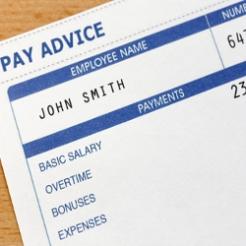Government proposals to improve payroll giving by opening up the market have been met with trepidation by sector bodies, which propose reforms go further to include online portals, service-level agreements between agencies and charities and the consolidation of back-end processes.
The suggestions have been made public today, as HM Treasury closes its consultation into payroll giving reform. A Treasury spokeswoman confirmed that more than 40 responses have been received.
But the ambition of the consultation itself was criticised by two leading commentators on payroll giving – the Institute of Fundraising and the sector’s largest payroll giving agency, Charities Aid Foundation.
The Institute repeated its frustration with the terms of the consultation – which had ruled out making all employers offer payroll giving – and argued that “wider reform is vital”.
Rhodri Davies, head of policy and campaigns at CAF, echoed this disappointment with the scope of the consultation, telling civilsociety.co.uk “We felt that a lot of these questions [posed in the consultation] had been covered in some detail before.”
But both organisations in their responses agreed that payroll giving – long criticised for underperformance – has scope to raise more money for good causes. It presently raises about £120m a year, with just one in 50 employers offering the scheme to their staff.
In its consultation, government had proposed that the payroll giving market, which is presently only serviced by charities, be opened up to for-profit companies who may bring with them a greater appetite for innovation. But both CAF and the Institute, in its seperate submission which was endorsed by the Charity Finance Group, said that this would be no silver bullet. The Institute argued that this might introduce “added complexity and confusion” under the current set-up. The position is a softening of the Institute’s chief executive’s initial reaction to the proposal, put forward in January, when he said: “Multiple providers from a charity’s point of view is not a good thing. They already have to deal with eight or nine agencies at a time. More would increase the complexity.”
CAF also tentatively supported the concept, but said that either for-profit companies will not be enticed into the market or they will be, but could be tempted to limit the number of charities they enable employees to support.
‘Lack of transparency’
The Institute also expressed concern about what it said is a lack of transparency and accountability in payroll giving. The present system requires that payroll giving agencies only have an agreement with the employers they work with, and not the charities they direct funds towards. This set-up means charities lack the power to hold agencies to account. The Institute called for payroll giving agencies to have to establish service level agreements with charities, so as to increase their accountability.
A further recommendation from the fundraising membership body is to establish a payroll giving online portal to enable employees to manage their own accounts. The Institute also proposed a central database of employers which offer payroll giving, a suggestion particularly relevant as provider Workplace Giving reveals that Treasury has twice refused a freedom of information request it put forward asking for a list of just such companies.
‘Consolidated back office’
Meanwhile CAF proposed the consolidation of the back-end processes of payroll giving – a market in which it presently is the largest provider. But CAF said rather this would not close the market, but suggested that processes be open to third-party developers to make innovations and improvements. This is also a slight watering down of CAF’s previous position, in which it had proposed there be one payroll giving agency.
‘Government leadership’
Both the Institute, in its submission supported by CFG, and CAF endorsed the view that government has a place to lead on payroll giving. The Institute argued that one government department should assume responsibility for payroll giving. All organisations said that the quirks and failings of payroll giving must be addressed before any promotional campaign go ahead.
Government has launched payroll giving promotion campaigns in the past, but there is still appetite for more to be done in future.
Jane Banks, chair of the Institute’s Payroll Giving Special Interest Group, said: “Payroll giving needs reform and now is a good time to make it happen.”








